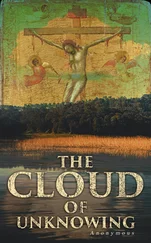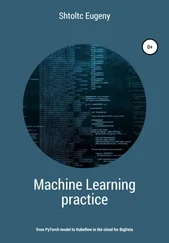Matt Richtel - The Cloud
Здесь есть возможность читать онлайн «Matt Richtel - The Cloud» весь текст электронной книги совершенно бесплатно (целиком полную версию без сокращений). В некоторых случаях можно слушать аудио, скачать через торрент в формате fb2 и присутствует краткое содержание. Жанр: Триллер, на английском языке. Описание произведения, (предисловие) а так же отзывы посетителей доступны на портале библиотеки ЛибКат.
- Название:The Cloud
- Автор:
- Жанр:
- Год:неизвестен
- ISBN:нет данных
- Рейтинг книги:3 / 5. Голосов: 1
-
Избранное:Добавить в избранное
- Отзывы:
-
Ваша оценка:
- 60
- 1
- 2
- 3
- 4
- 5
The Cloud: краткое содержание, описание и аннотация
Предлагаем к чтению аннотацию, описание, краткое содержание или предисловие (зависит от того, что написал сам автор книги «The Cloud»). Если вы не нашли необходимую информацию о книге — напишите в комментариях, мы постараемся отыскать её.
The Cloud — читать онлайн бесплатно полную книгу (весь текст) целиком
Ниже представлен текст книги, разбитый по страницам. Система сохранения места последней прочитанной страницы, позволяет с удобством читать онлайн бесплатно книгу «The Cloud», без необходимости каждый раз заново искать на чём Вы остановились. Поставьте закладку, и сможете в любой момент перейти на страницу, на которой закончили чтение.
Интервал:
Закладка:
Maybe Faith disappeared between two houses, or climbed into a car or maybe I was disoriented longer than I imagined, giving her ample escape time. Escape from what?
My head pulses. I look behind me. An ambulance pulls up outside Alan’s building. No sirens. Paramedics hate dead bodies. No adrenaline rush, just paperwork.
I pull out my phone. I dial Faith. It rings once and goes to voice mail.
“Faith, it’s Nat. Talk to me or the police. Your call.”
I hang up and think: stupid. Faith’s reaction to seeing Alan might well have been natural. Is death why I left medical school? The loss? I guess I understand why Faith might flee, but she keeps leaving the scene.
I’m unsure what to do when I feel a familiar urge to check my email. It used to be I’d require a ping of an incoming message to prompt my curiosity, but now I’ve internalized the ping. I’m the dog without Pavlov’s whistle and I know psychologists know why. Email provides one of the greatest of addictive properties in that it’s randomly reinforcing. You never know when an interesting email is going to come so you feel compelled to check constantly, even though most of the stuff is worthless. It’s not a phone; it’s a pocket slot machine.
This time, mini-jackpot. There’s a message from Sandy Vello: “Sure, let’s meet. How about 2night? Call me to cordinate. My terms. No paparazzi!” She includes her phone number.
So she can spell “paparazzi” but not “coordinate”; that’s everything I need to know about this woman’s personality. But what are her secrets? What do they have to do with dead Alan and disappearing Faith?
I walk back in the rough direction I parked my car, having trouble placing which side street we parked on. The path takes me kitty-corner to Alan’s apartment building. The ambulance remains parked outside. Now there’s a squad car too. A little crowd has gathered. Still moving, I look over my shoulder to see the landlady wander out front and confer with a cop. He looks up and down the street. I drop my head.
Around the corner, I lean against a wall painted with a wilted cigarette nearly my height and spewing smoke, the progressive antics of an anti-smoking tagger. I reach into my pocket and withdraw the notes I took from a dead man’s desk. Stylistically, they look like they were written by a busy engineer-the handwriting precise, the letters written in small block font. Yet, various words and numbers are written at different angles across both sides. Scratch paper filled with artful scribbles.
On the front, there are two phone numbers. One in the 650 area code, which means Palo Alto and its surrounding cities. Next to it, a name: Kathryn Gilkeson. I thumb the number into my phone but don’t call it. The other number is in the 415. I recognize it; it’s already in my phone. It belongs to Faith.
On the top right corner of the yellow-lined sheet are five sets of numbers: 8:47, 9:06, 9:11, 9:35, 9:50.
Times. I make this assumption not just because of the obvious syntax but also the phrase just below the numbers. It reads: “Dr. Jurgenson-7:45-8:40.”
Dr. Wilma Jurgenson. I flash on her image: thin, praying mantis-like in the crooked way she collapses her long legs beneath her when she sits, plain face, straight black hair, prematurely aged hands from hyperthyroidism. I got together with her at 7:45 the night of the incident at the train station, just a few minutes before I nearly died on the subway tracks.
I feel another light-headed flash, warmth flooding across my brow, an acid scent in my nostrils. How does Alan Parsons know my schedule?
I’m having trouble focusing on the piece of paper. It’s not my eyesight; my hand is quivering, like I’ve got late-stage Parkinson’s.
I start walking down the block, away from Alan’s apartment. I pause next to a Mexican bakery. I’m trying to remember where I parked my car. I again picture Dr. Jurgenson. She’s a brain specialist, friend and a great journalistic source who has been invaluable in helping me understand the human mind. But I can’t seem to remember what Wilma and I discussed when I last saw her. It was nothing special, I think, not substantive at all, not much science, maybe about family, more catch-up than interview.
I shake my head. I remember where I parked the Audi-on a lightly trafficked street just off the main drag, two blocks from the cafe. A few minutes later, I climb inside. I place Alan’s scrap paper on my knee. In a carefully etched box on the left of the paper there is a list of groceries: “Oreos, bacon, Tater Tots, soy milk, Tylenol PM.” So he’s a bad sleeper, maybe lactose intolerant, not a health nut.
To the left and a few lines below the list, there are math equations. At the top is the dollar amount $14,000, from which he’s subtracted $3,500, and then, from the $10,500 that remains, he’s subtracted $1,500. The figure that’s left is $9,000, and it is, in turn, multiplied by 1,000. It leaves $9,000,000, which is circled several times with neat zeal.
It’s a neither-here-nor-there sum, maybe big for an individual like Alan but small for a corporation or a major conspirator. In Silicon Valley, money is measured in billions, with a B.
On the other side of the paper, there are two Chinese characters. I’ve seen them before, I remember, on a manila folder on the dead man’s desk. As I look at the characters, my eyes glaze, the character outlines getting fuzzy. One looks like a horse with wings and the other like a piano standing on a mouse. Beside the characters, there’s what appears to be a date: “2/15.”
It’s February 3. The fifteenth is in two weeks. My first thought is that Valentine’s Day falls on the fourteenth; I picture Polly a year ago in fishnet stockings. My head pulses. I need to rest.
One thing to do first. I should wait until I’m clearheaded to bull-rush into this evidence, the 650 phone number, Palo Alto.
I dial.
17
The evidence remains inconclusive that radio signals cause tumors. Believe me, I’ve looked. I got obsessed with the idea after Isaac was born at a hospital built under the shadow of Sutro Towers, the huge radio and TV transmitter poking totem-like through the fog on Twin Peaks.
But my real paranoia came from the phones. I picture Polly, her BlackBerry nestled by her head. She looks like a baby bird taking manna from the maw of the device, or maybe it’s the other way around. She once told me she favored headsets because the psychology of deal making could be undone by poor sound quality, like wind gusts. For a brief period, I couldn’t get it out of my head that a barrage of radio signals was hurting her head but my foray into that investigative realm came up empty. Over the years, the cell phone makers, terrified they’d be sued for killing everyone on the planet, moved the radio chips nearer the mouthpiece and away from the part of the headset closest to the brain. No critical mass of science had yet given a plaintiff’s lawyer enough to mount a reasonable case.
Still, the old fear surfaces as I bring my phone to my ear. After the third ring, I hear it answer.
“Hello, this is Jill.” For a second, I can’t tell if it’s an actual person or her answering machine, a confusion that happens to me more often lately. Once, during happier times, I launched into a full-throated romantic poem before realizing I was talking to Polly’s voice mail.
“Hello,” I venture.
“May I ask who is calling?”
Split-second decision. “Hey, Jill.” Always repeat the name. “I’m about to make a complete fool of myself.”
“You’re in good company.” She laughs. “Can I help you?”
“I’m not a telemarketer. I’m a journalist. Nathaniel Idle. I promise: not selling.”
“Okay.” Wary.
Читать дальшеИнтервал:
Закладка:
Похожие книги на «The Cloud»
Представляем Вашему вниманию похожие книги на «The Cloud» списком для выбора. Мы отобрали схожую по названию и смыслу литературу в надежде предоставить читателям больше вариантов отыскать новые, интересные, ещё непрочитанные произведения.
Обсуждение, отзывы о книге «The Cloud» и просто собственные мнения читателей. Оставьте ваши комментарии, напишите, что Вы думаете о произведении, его смысле или главных героях. Укажите что конкретно понравилось, а что нет, и почему Вы так считаете.












